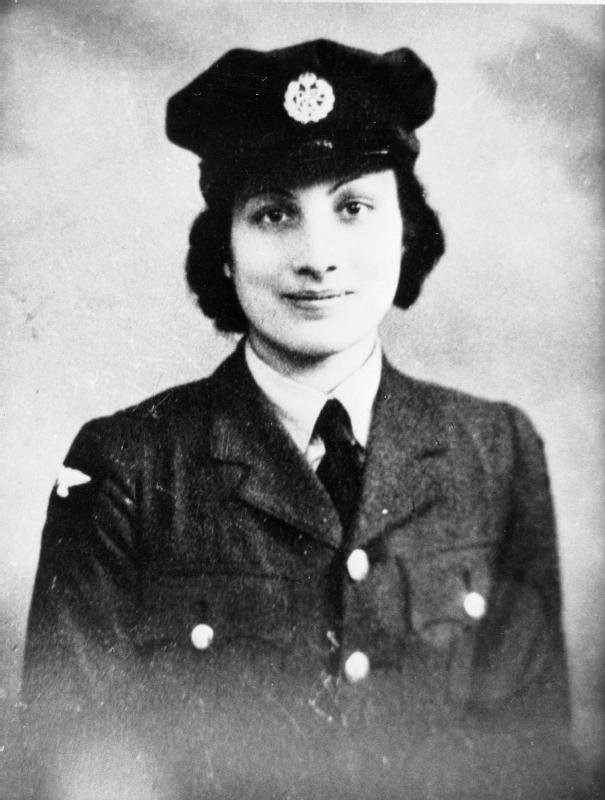
Noor Inayat Khan: A Poignant Example of Unwavering Courage
The 2019 the American Spy Thriller A Call to Spy, gave a new lease of life to the lesser told story of Noor Inayat Khan[1], a British secret agent of Indian origin who served as a poignant example of unwavering courage, selflessness, and an unconquerable commitment to justice. The film was just a glimpse and introduction to Noor’s life where she defied societal expectations and risked
everything to fight against the tyranny of the Nazis. While researching about her life, I realised how her story is much more than what the movie served; it was extraordinary. [2]
World War II witnessed one of the deadliest conflicts in human history. Nazi Germany led by Adolf Hitler had launched a strong campaign to occupy Europe[3]. This war was not only fought on battlefields but also through resistance movements, intelligence operations, and espionage. Britain, facing the threat of German occupation, relied on the Special Operations Executive (SOE) to send secret agents into enemy territory to disrupt Nazi control. It was in this high-stak environment that Noor Inayat Khan would play a pivotal role.[4]
Noor was born on 1st January 1949 in Moscow as the eldest child of Pirani Ameena Begum, formally known as Ora Ray Baker, an American from New Mexico, and Inayat Khan, who was a revered Indian Sufi musician and preacher. Through her father, Noor was a direct descendant of the famous Indian ruler Tipu Sultan, who valiantly resisted British colonialism in India.[5] Although her lineage was one of war and resistance Noor was raised in a deeply spiritual and pacifist environment that emphasised Sufi teachings of love and unity as well as non-violence.
During the first World war her family moved to London and later settled in Suresnes, France in 1920. Noor’s childhood was filled with several artistic and literary pursuits where she played the harp, studied psychology at the Sorbonne, and even wrote children’s books. However, when the Second World War broke out, she found herself absolutely compelled to act. Despite her family’s strong peace loving beliefs, Noor chose to fight against the Nazi regime, which was engulfing all of Europe. [6]
As the Nazi threat loomed over France, Noor personally felt a deep responsibility to contribute to the war efforts. She escaped to England with her family in the year 1940, where she joined the Women’s Auxiliary Air Force (WAAF) as a radio operator. Her fluency in French, along with her technical skills, gained the interest of the Special Operations Executive (SOE), which was a coveted British organisation assisting resistance movements across occupied Europe. Noor was selected for one of the most perilous missions to serve as a wireless operator in occupied France. The work was immensely dangerous as wireless operators were often captured within 6 weeks of deployment. Nevertheless, she accepted the assignment without any hesitation, while being fully aware of the risks involved.[7]
Noor arrived in France in June 1943, where she worked alongside the Prosper network, which was one of the leading resistance groups aiding the allies. However, misfortune came her way within days of the arrival; the Gestapo[8] had intruded into the network, leading to mass arrests. With most operatives captured or executed, Noor made the courageous decision to remain in France rather than return to safety. [9]
For months she became the sole communication link between London and the shrinking resistance forces in Paris. Constantly on the move, Noor conveyed important vital messages coordinating supply drops, sabotage missions and intelligence exchanges. The Gestapo was hunting for wireless operators non stop, and amidst all this she continued her work, refusing to abandon the mission. Her bravery and resilience were so outstanding that the Gestapo later admitted that she was the “most wanted British agent” in Paris.[10]
She broke preconceptions and expectations as a Muslim woman of Indian descent in a British intelligence network that was controlled by white men. During a period when colonial subjects were frequently marginalised, Noor’s contributions showed that patriotism and bravery were not limited by race, gender or religion. With a strong sense of duty and fairness, she persisted in the face of hostility and scepticism from some of her British contemporaries.
Her resilience was also influenced by her Sufi background. Noor believed that it was morally required to resist oppression, even if her father advocated for nonviolence. She overcame the trials of espionage, captivity, and torture without sacrificing her goal because of her faith and moral convictions.

Noor Inayat Khan 11
On 13 September 1944, Noor was executed at the Dachau concentration camp. Even in her final moments, she refused to break down and submit to fear. Her last word was “liberté,” which stands for liberty in French, and it was a powerful affirmation of the cause that she had fought for so passionately.[12]
Noor Inayat Khan’s heroism was not forgotten. She was posthumously awarded the George Cross, which is Britain’s highest civilian honour for gallantry, as well as the French Croix de Guerre. In 2012 a bronze bust was unveiled in London’s Garden Square Gardens, making her the first Muslim and first South Asian woman to be honoured in such a manner in the UK. Her story has been immortalised in books and film, such as “The Life of Noor Inayat Khan” by Shrabani Basu and the 2019 film A Call to Spy. In 2020 a Blue Plaque was installed in her honour in Bloomsbury where she was born. [13]
Noor’s legacy challenges all the conventional narratives that we have about what heroism stands for. Noor Inayat Khan’s story is not something to be missed in history books and pages; in fact, it is a powerful reminder of what one individual can achieve in the fight against injustice and oppression. As we reflect on her life during this Muslim History Month, her immense dedication and passion to freedom serve as an inspiration to generations to come to never lose hope. In an era where the world still grapples with gendered stereotypes and marginalisation, Noor’s story is like a silver lining and becomes more relevant than ever.
(The views expressed in this article are the author’s own. Content can be used with due credit to the author and to ‘Zariya: Women’s Alliance for Dignity and Equality’)
Footnotes:
[1] The first picture in the article is of Noor Inayat khan, Source: https://www.muslimwarmemorial.org/veterans-project/noor-inayat-khan-gc/
[2] https://www.aljazeera.com/features/2020/10/28/noor-inayat-khan
[3] https://www.bbc.co.uk/teach/class-clips-video/articles/zyvfvwx
[6] https://wanderwomenproject.com/places/noor-inayat-khan-memorial/
[7] https://www.bbc.com/news/uk-20240693
[8] The Geheime Staatspolizei, abbreviated Gestapo, was the official secret police of Nazi Germany and in German-occupied Europe.
[9] https://www.nationalarchives.gov.uk/education/resources/who-was-noor-khan/
[10] https://www.theguardian.com/world/2020/jun/18/executed
[11] https://www.nytimes.com/2018/11/28/obituaries/noor-inayat-khan-overlooked.html
[12] https://war-experience.org/lives/noor-inayat-khan-soe/
About the Author:

Rajika is a first year Masters student specialising in women centered social work at the Tata Institute of Social Sciences. Her areas of interest include researching on various social and environmental themes including intersectionality, caste, gender, tribal discourse and ecofeminism.



